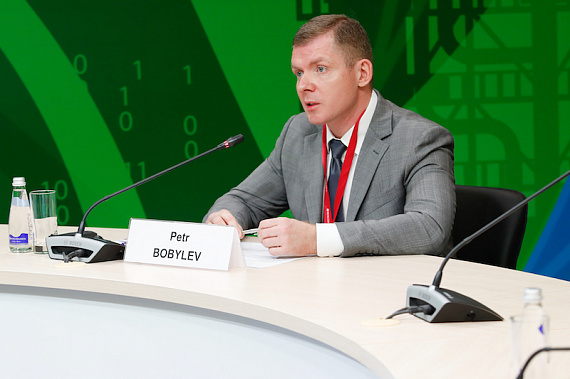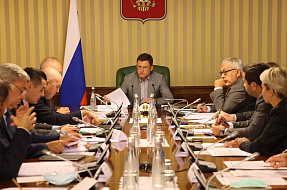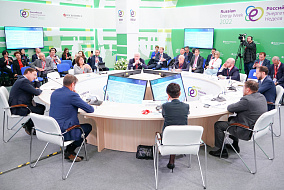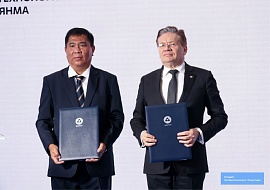The Future of Russia’s Centralized District Heating Infrastructure

KEY CONCLUSIONS
District heating is one of the largest-scale sectors of the Russian economy
“We’ve become accustomed to the fact that the average annual temperature across our entire country is below zero. The bulk of our heating capacity is still linked to the energy industry and housing services and utilities left over from Soviet times. But we have taken decisive action to modernize and invest in the sector. The symbiosis of these two approaches – the planned economy and subsequently the market economy – is at the very heart of the system we now have,” Peter Bobylev, Deputy Minister of Energy of the Russian Federation.
“In Russia, district heating is an even larger sector than electricity generation. Russia produces roughly the same amount of thermal energy as China, but China produces seven times more electricity. That means that for every one kilowatt hour of thermal energy we produce from fuel combustion, we are consuming seven times more than China, and seven times more than the European Union,” Yury Melnikov, Senior Analyst at Moscow School of Management SKOLKOVO.
District heating in Russia will need to be part of the low-carbon agenda
“While in the past we have optimized the district heating system to stimulate commercial activity for Russian companies, implement marginal cost pricing and curb the rise in tariffs, this issue is now part of the international agenda. Energy efficiency is one of the ways in which we can reduce our carbon emissions,” Peter Bobylev, Deputy Minister of Energy of the Russian Federation.
“Over the past three years we’ve witnessed the impact that decarbonization has had on the fuel and energy industry, as well as our country’s economy. If we added up our total carbon emissions from the district heating sector, they would be 1.5 times the emissions from electricity generation. For each gigacalorie produced we emit around 1.2 tonnes of carbon,” Yury Melnikov, Senior Analyst at Moscow School of Management SKOLKOVO.
PROBLEMS
Strict requirements for heating suppliers and a lack of support mechanisms
“If the government, as the one setting our tariff, were to impact our business and start limiting investment opportunities through the tariff, we would want more support. We have been sorting out the Support Fund for the Reform of the Housing and Utilities Sector for long enough, and the proposals are counterproductive. When I heard about this financing plan being proposed by the Support Fund, I realized that it was going to cost me more than a straightforward bank loan,” Andrey Vagner, Chairman of the Board and General Director of T Plus.
“We are heavily regulated in terms of temperature, pressure and outage length requirements. We’re grappling with all of this. For example, one of the issues is that we have to cut off the hot water supply for certain lengths of time. In the summer, we have to disable the hot water supply to back up the system and so on. The requirements and regulations in this area are mounting, and in recent years it seems that we’ve been selling an amenity rather than gigocalories for heating. The proper and logical thing to do would be to close off cities and manage heating on a city-wide level,” Andrey Vagner, Chairman of the Board and General Director of T Plus.
SOLUTIONS
Strengthen the district heating system and eliminate small inefficient heating plants
“Decentralizing the heating system is definitely not in our sights. It goes without saying that we would only consider having mini thermal power plants or small heating plants in places where centralization isn’t possible and where an energy efficient layout already exists. In theory, in cities with half a million people, and even in cities with 100 thousand people, it’s a case of centralizing and optimizing the energy production balance,” Peter Bobylev, Deputy Minister of Energy of the Russian Federation.
“Heat produced at thermal power plants is highly efficient and inexpensive. For that reason, one of our priorities is to replace the large quantity of small heating plants in our region. We have already replaced around 1,800 gigacalories of heating plant capacity, mainly from coal-fired plants,” German Mustafin, General Director of Siberian Generating Company.
Support private investment in the sector to drive efficiencies and technological advances
“Personally, I would give major private investors the chance to continue investing and participating in the sector. We need to develop instruments to facilitate this, such as alternative heating plants and cost benchmarking tools in related areas,” German Mustafin, General Director of Siberian Generating Company.
“When the Ministry of Digital Development, Communications and Mass Media of the Russian Federation held a competition on digitalisation, we were awarded RUB 12 billion. By November or the start of December we will have finished designing a megacity which is intended to be a digital twin of Yekaterinburg, based around the topic of automation, metering and so on. Our current task is to replicate the project across all cities that we are present in. We plan to do so, and we’ve taken all steps to digitalize the company as part of a wider investment programme worth RUB 42 billion,” Andrey Vagner, Chairman of the Board and General Director of T Plus.
“In Krasnoyarsk, there is currently a trial under way in part of the city, which is looking at the electrification of heat, i.e., replacing individual coal heating systems with electric heating. The trial has shown us the importance and necessity that consumers attach to this. Our feeling is that consumers are willing to pay for this,” German Mustafin, General Director of Siberian Generating Company.
For more information go to the Roscongress Foundation Information and Analytical System roscongress.org.





